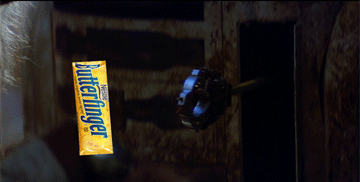CartesianFart
Deity
I am always fascinated and somewhat humored by the strange speech style of Jedi Master Yoda.In the film "The Empire Strikes Back" that I have watched last night,I come to the realization (eventhough I already knew it when i've heard it when i watched it as a kid growing up) that just because it appears to have a different surface forms,its still the same underlying structure.
One of ways to understand this (been studying linguistic in my spare time to study German) is to understand "word-order":the sequence in which grammatical elements such as Subject,Verb,Object occurs in sentences.I have to say that this (Typology) is probably better than the method of the old morphology.
Lets look at little green Yoda in the pattern of object,subject,verb (OSV) in conjunction to our English sequence (SVO).
Sick have I become. (VS) I have become sick.
Strong am I with the force. (VS) I am,with the force,strong.
or Classical Hero's correction-I am strong with the force.
Your father he is. (VS) He is your father.
When nine hundred years old you reach,look as good you will not.
(VS)When you reach nine hundred years old,you will not look as good.
So the purpose in this thread is that I want to see non-native English posters to construct sentences SVO and then state it in your own native "word-order."And this can also be for the other posters who are already (as I am) indoctrinated to come up with your own non-SVO "word-order" sentences and compare it with the SVO structure that contrast it.
[Note]Apart from Latin and others that are "free word-order,"there are six logical possibilities in general "word-order" structures:SVO,SOV,VSO,VOS,OSV,and OVS.
One of ways to understand this (been studying linguistic in my spare time to study German) is to understand "word-order":the sequence in which grammatical elements such as Subject,Verb,Object occurs in sentences.I have to say that this (Typology) is probably better than the method of the old morphology.
Lets look at little green Yoda in the pattern of object,subject,verb (OSV) in conjunction to our English sequence (SVO).
Sick have I become. (VS) I have become sick.
Strong am I with the force. (VS) I am,with the force,strong.
or Classical Hero's correction-I am strong with the force.
Your father he is. (VS) He is your father.
When nine hundred years old you reach,look as good you will not.
(VS)When you reach nine hundred years old,you will not look as good.
So the purpose in this thread is that I want to see non-native English posters to construct sentences SVO and then state it in your own native "word-order."And this can also be for the other posters who are already (as I am) indoctrinated to come up with your own non-SVO "word-order" sentences and compare it with the SVO structure that contrast it.
[Note]Apart from Latin and others that are "free word-order,"there are six logical possibilities in general "word-order" structures:SVO,SOV,VSO,VOS,OSV,and OVS.



 Hate nivi Palestinians.
Hate nivi Palestinians.





